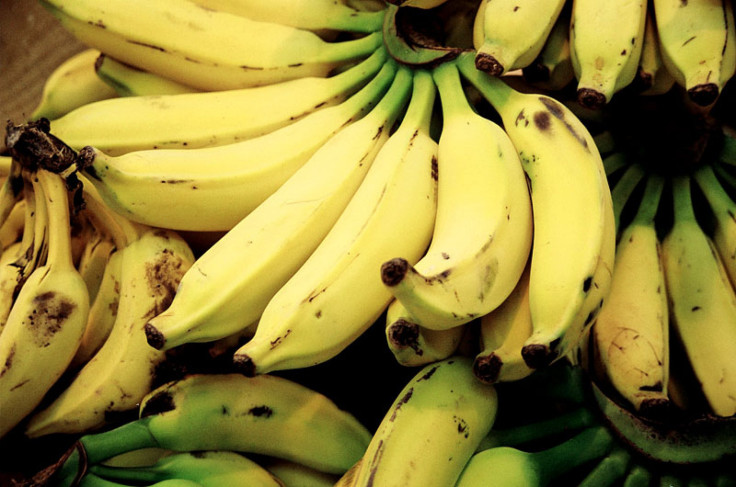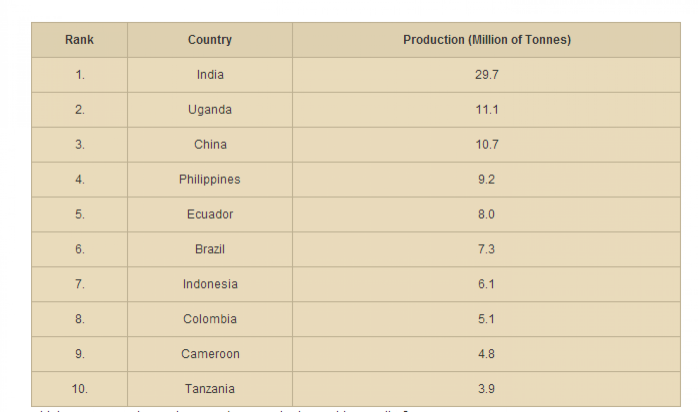Climate Change Watch: The Banana's Days May Be Numbered As Warming Prompts Insect Infestations

Add bananas to the list of things we love that are threatened by climate change.
That's the takeaway from a recent Scientific American report and the conclusion of Magda González, Costa Rica's director of the agriculture ministry’s State Phytosanitary Services (SFE), which oversees the Central American nation's crop of the yellow fruit eaten around the world.
Costa Rica, a large banana exporter, recently declared a national emergency after 20 percent of the nation's crop was devastated by two separate outbreaks of mealy bugs and scale insects, according to a report published last week by the Tico Times, an English-language newspaper covering Central America.
“Climate change, by affecting temperature, favors the conditions under which [the insects] reproduce,” González told the paper. “I can tell you with near certainty that climate change is behind these pests,” she said.
The bugs disfigure the fruit, which causes exporters to reject up to 20 percent of it for shipment and weakens the plants' overall health.
According to the Tico Times report, Costa Rica in 2012 exported more than 1.2 million tons of bananas, which generated more than $800 million in revenue.
According to the Scientific American report, the problem is not restricted to Costa Rico or Central America.
The magazine reported that the banana-killing fungus called Fusarium oxysporum f. sp.cubense has been found in growing regions in Mozambique and Jordan and threatens to spread worldwide. Previously, the report said, the fungus was believed to be isolated to Australia and certain Asian venues.
The fungus already wiped out the previous Gros Michel strain of bananas in the 1950s and now threatens that strain's successor, the Cavendish, Scientific American said.
Here are the world's top 10 banana producers, according to whichcountry.co.

© Copyright IBTimes 2025. All rights reserved.






















